While politics unfolds on the streets, elections hang in the air

Bangladesh is once again at a crossroads. The country needs the upcoming parliamentary election to be a free, well-participated election to restore its credentials. It is time to choose our representatives again and to transfer not power, but responsibility, to them peacefully so that we can return to the task of self-governance. Are we ready for the task?
At the mature age of 52 and with no stable system of electoral governance and transfer of power in sight, Bangladesh is reeling under internal turmoil, external pressures, and an irresponsible and immature political leadership.
Our politics has been traumatic. After the return to democracy in 1991, our political journey towards parliamentary democracy over the past 32 years demonstrates behavioural patterns in ruling and opposing parties that have mired the possibilities of healthy politics for a culture of a "sane" society that could have been a green ground to grow and nurture democracy. Instead, it has been ruthlessly trampled upon, turning into a waste land where nothing but hatred can grow. Today, on the eve of our 12th parliamentary election, we witness an ongoing battle for the highest seat of governance where all decisions are made, with the parties convinced that if you cannot keep your grip on your streets, you are unseated!
Based on these political premises, the streets are more important than the parliament, the kingsmen are more important than the judiciary, an army of sycophants and loyalists are far more important than voters!
So why should a political party elected to power build democratic institutions? It does not support the "street ideology." And why should a political party in opposition not do everything to obstruct the smooth functioning of parliament? Well, it does not comply with the "street dictum." They all choose the streets to be their seat of governance. Hence all political parties, big or small, have the same political ideology. And if you cannot join or support the skirmishing sides, it does not matter for whom you vote; you may not reach the polling booth, but some kind individual may make sure that you are not "disenfranchised." Isn't that nice? The system works. No one is left behind. Just like it happened in 2018.
There is no doubt that to win an election, we need to have "street wisdom," an endless flow of money, and an army of loyalists.
No one can beat the ruling party when it comes to street wisdom. With decades of experience, they are the maestro of street agitations – they have won many battles on the streets. The endless flow of money is no problem. The parliament is now at the centre of our business world and in the hands of our business tycoons. Free market policy allows them free access to our reserves. The problem of money has been solved.
As for the growing loyalists, opposition parties provide an additional force. They break into splinter groups headed by "tribal chieftains" who are satisfied with a few crumbs from the pie. They form the much needed "trusted" opposition. That, too, is done.
And in all this, where does the Election Commission (EC) stand? With the Administration and Home still beyond its control and an RPO that reduces its powers, and an unrelenting political grip over its functioning, the EC is in a state of limbo – dangling in thin air, watching from above as the street fights continue.
The street fights will take lives, as they have done in the past. It will hurt vulnerable voters and "those who do not belong." Fear of losing power and a backlash, and the existential fear of not getting to power, are tearing the political parties apart. All sides have to work to reduce fear in the others. The prognosis is the "coming of a new tragedy."
But it need not be so if they leave the streets – if the parties come to the table to talk and concede on an all-party approach, as they did in 1991 and again in 2008. We, the tired people of Bangladesh, are waiting for our political parties to put behind an era of hatred and violence, and embrace compassion and forgiveness, so that this nation can move forward free from the prison of the past.
Sharmeen S Murshid is an election analyst and chief executive officer of Brotee, a civil society organisation.
Views expressed in this article are the author's own.
Follow The Daily Star Opinion on Facebook for the latest opinions, commentaries and analyses by experts and professionals. To contribute your article or letter to The Daily Star Opinion, see our guidelines for submission.

 For all latest news, follow The Daily Star's Google News channel.
For all latest news, follow The Daily Star's Google News channel. 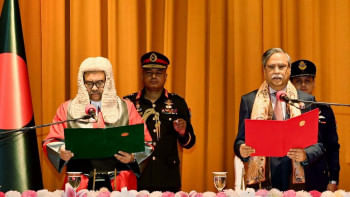
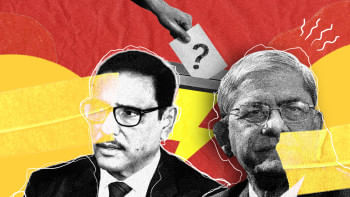
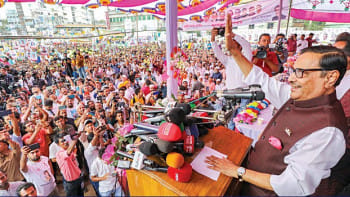



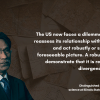
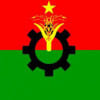
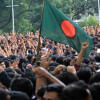



Comments